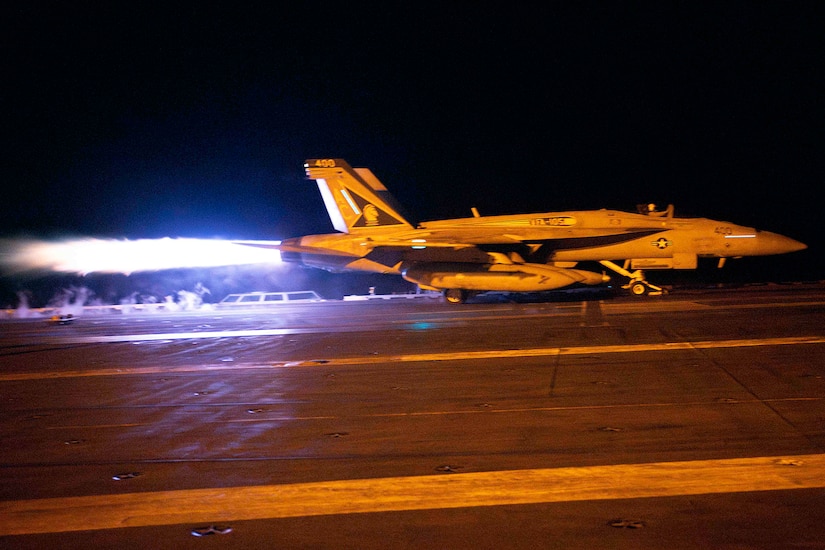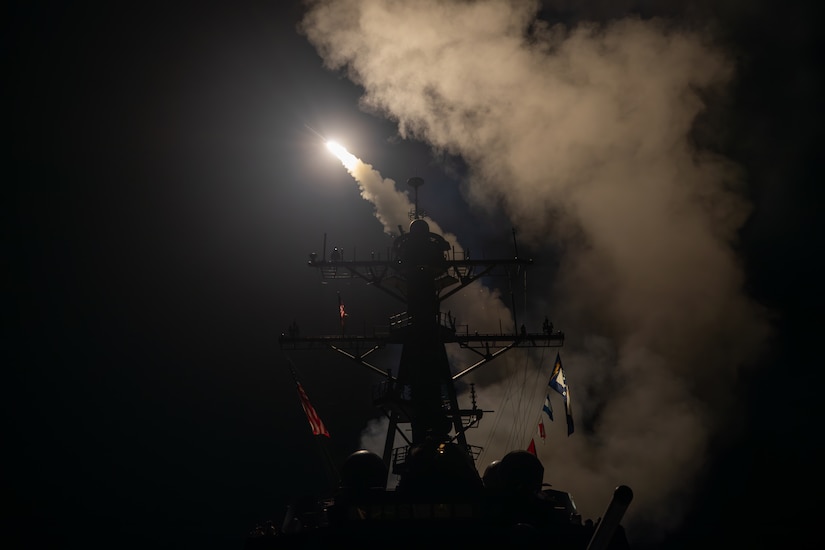U.S. and partner forces launched additional defensive strikes against military targets in Houthi-controlled parts of Yemen yesterday aimed at further diminishing the terrorist group’s capabilities.
The joint strikes were the second round of precision strikes to be carried out by the U.S. and United Kingdom with support from Australia, Bahrain, Canada and the Netherlands in response to a series of attacks launched by the Iran-backed group against commercial ships operating in the Red Sea.
The latest round of U.S.-led strikes included eight Houthi targets, including an underground storage site and locations associated with the rebel group’s missile and air surveillance capabilities.
They follow similar joint strikes on Jan. 11 by the U.S.-led coalition targeting command and control nodes, munitions depots, launching systems, production facilities and air defense radar systems used by the Houthi’s to carry out attacks against vessels operating in international waters.
“These precision strikes are intended to disrupt and degrade the capabilities that the Houthis use to threaten global trade and the lives of innocent mariners, and are in response to a series of illegal, dangerous and destabilizing Houthi actions since our coalition strikes on January 11, including anti-ship ballistic missile and unmanned aerial system attacks that struck two U.S.-owned merchant vessels,” the partner nations said in a joint statement following the strikes.
The U.S. has also launched several unilateral strikes against Houthi capabilities posing imminent threats to vessels operating in the region following the Jan. 11 joint strikes.
In a briefing to reporters following yesterday’s joint strikes, U.S. defense officials said that while battle damage assessments were ongoing, they assess that the latest strikes were successful in further degrading Houthi capabilities.
The officials further underscored the importance of securing peace and stability in the Red Sea.
“These assaults, notably the unprecedented use of [anti-ship ballistic missiles], have significantly disrupted the free flow of commerce and navigational rights in one of the globe’s most critical waterways,” an official said.
The official added that the Houthi attacks have led to more than 14 shipping companies ceasing operations in the Red Sea, severely impacting global commerce and regional economies.
“We stand ready to take further actions to neutralize threats or respond to attacks, ensuring the stability and security of the Red Sea region and international trade routes,” the official said.
Since mid-November the Iran-backed group has launched attacks against at least 33 commercial vessels. U.S. military and merchant vessels have also come under persistent threat from Houthi attacks.
The rebel group has employed a variety of weapons including anti-ship ballistic missiles, land-attack cruise missiles, uncrewed surface vessels and unmanned surface vehicles, officials said.
Those attacks have been met with broad international condemnation.
In their statement following yesterday’s strikes, the U.S. and its partners affirmed that they aim “to de-escalate tensions and restore stability in the Red Sea,” but warned Houthi leaders: “we will not hesitate to defend lives and the free flow of commerce in one of the world’s most critical waterways in the face of continued threats.”
In December, Secretary of Defense Lloyd J. Austin III launched Operation Prosperity Guardian, an international maritime task force designed to defend against the attacks.
The defensive strikes launched against the rebel stronghold in Yemen were not associated with, and are separate from, Operation Prosperity Guardian.
Operation Prosperity Guardian brings together forces from more than 20 nations to address the challenges in the region and ensure freedom of navigation in the Red Sea and Gulf of Aden.
The forces operate under the umbrella of the Combined Maritime Forces and the leadership of Task Force 153, a U.S. Navy-led initiative focused on maritime security in the Red Sea.





